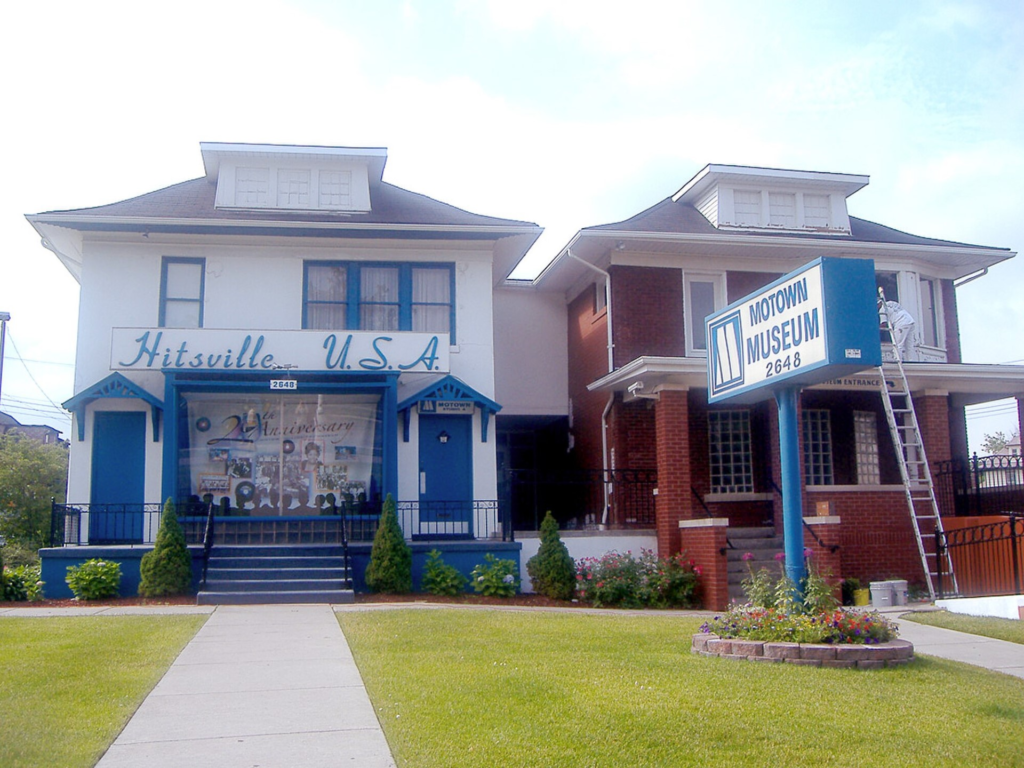By: Sydnee Walcott
During the 1960s there were political changes that were enacted during the Civil Rights Movement. Approaching the end of segregation, the rise of the Black Power Movement emerged and people began to notice many Black figures become more prominent within the entertainment industry. These efforts were recognized through a record label that would make history in breaking free from racial barriers.
When it comes to recognizing Black intelligence, individuals like Berry Gordy Jr. inspire the public that there are many opportunities for artists to put forth their unique talent. He demonstrates an independent and self-reliant attitude when achieving goals that contribute to the success of Motown, a record label that brought many Black artists together. He also teaches young artists to take risks and follow their desire to create meaningful content that can change peoples lives.

On January 12, 1959, Motown was founded in Detroit, Michigan, by Berry Gordy Jr., a former boxer and automobile worker, with the help of an $800 loan from his family.
These careers provided him with the skillset to enact perseverance, patience, and a mastery of applying vast knowledge to fix various cars and defending himself that helped him keep up with the fundamentals of running an independent record label.
The record label’s name was initially Tamla Records before it was changed to Detroit’s nickname “The Motor City.”
Before Motown’s founding, Gordy was a R&B and soul songwriter who wrote songs for local acts in Detroit such as Jackie Wilson and the Matadors.
Although Wilson’s single, “Lonely Teardrops,” achieved huge success, Gordy felt he was not compensated fairly compared to his other singles that he wrote for Wilson.
Gordy realized that he could generate the wealth he wanted by producing records and owning the royalties for it. His passion for owning an independent record label was due to feeling limited in his writing capabilities and the talent he put forth signing with other artists. Gordy had a desire for breaking norms and setting the bar high when it came to producing quality content in the music industry.

When Billy Davis and Gordy’s sisters, Gwen and Anna, created Anna Records, they wanted Gordy to be the company’s president. Berry declined the offer because he wanted to have an independent record label that he could own. This led to the birth of Motown Records.
The Matadors, who became The Miracles, became the first act to sign to the record label with their lead singer, Smokey Robinson, becoming the label’s vice-president.
During the same year of Motown’s founding, Berry purchased property on Detroit’s Grand Boulevard which would eventually become Motown’s original headquarters — “Hitsville U.S.A.”
The label achieved rapid success with the release of its first hit “Money (That’s All I Want)” performed by Barrett Strong.
In 1960, the release of The Miracles’s single, “Shop Around,” became the label’s first record to sell over a million copies to a wide audience.
The following year, “Please Mr. Postman” by The Marvelettes would become the label’s first number one song, and their success continued to grow ever since.
Throughout the 1960s and 70s, Motown Records was recognized all over the map including a variety of top-charting hits from artists and groups like: Smokey Robinson and The Miracles, The Temptations, Diana Ross and The Supremes, The Jackson Five, Marvin Gaye, Stevie Wonder, The Isley Brothers, and Gladys Knight and The Pips.
The early 1970s saw changes for Motown when Gordy departed from Detroit and decided to relocate the label’s headquarters to Los Angeles, California, in 1972.
Shortly after moving to Los Angeles, Gordy would dabble in the film and television industry with the founding of MoWest Records before becoming defunct in 1973.
By 1975, many artists and groups had departed from the label, but Motown still continued to achieve success throughout the late 70s into the 80s with acts such as Lionel Richie and The Commodores, Rick James, Teena Marie and DeBarge.
In June of 1988, Gordy sold his ownership of Motown Records to Music Corporation of America (MCA) and Boston Ventures for $61 million. This decision led to the label losing profit in the mid-1980s.
Throughout the 1990s, they continued to include successful acts such as Boyz II Men, New Edition member Johnny Gill, 702, Brian McKnight and Erykah Badu.
In December of 1998, Motown was folded into the Universal Music Group, and in 2005, merged with the label to establish the Universal Records Group where it continues to uphold a distinct legacy as a strong force in the music industry. This umbrella division of Universal Music oversees the catalogs for labels like Motown, Universal, Background, Republic, Cash Money, and Casablanca.
During a period where significant changes were taking place such as the end of racial segregation and the emergence of Black pride, Motown Records stood out in the forefront to help break down racial barriers during the time and attract a diverse audience of music lovers.
Motown’s legacy does not solely consist of being an opportunity for many Black artists to engage in. The label has established a political legacy for itself by bringing awareness to issues that occurred during the height of its popularity. This legacy inspires many Black artists and content creators to strive for new heights when it comes to musical entrepreneurship.

Sydnee Walcott is a Copy / Contributing Editor for Black Voice. She is also a writer who likes to capture the essence when writing articles on a variety of topics.

